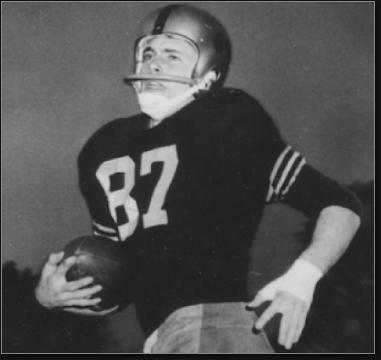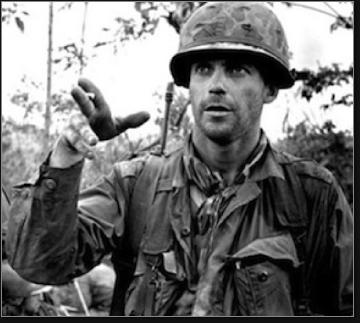
Sport: Football
Born: September 30, 1937
Town: Woodbury, New Jersey
William Stanley Carpenter Jr. was born September 30, 1937 in Woodbury. His father was a car salesman who picked up a few extra dollars playing semipro football on the weekends. In 1944, Bill Sr. was drafted at the age of 36. He died in an artillery attack in Germany one month before the war ended in Europe. Bill’s mother remarried Clifford Dunn, who became the comptroller at the Philadelphia Navy Yard. The family moved to Pennsylvania, where Bill became a top-ranked sprinter and pass-catching football halfback. While attending Springfield High, just outside Philly, he ran the 100 in under 10 seconds.
Bill was recruited by several colleges, but had already made up his mind to attend West Point. Army was loaded with talent, including Pete Dawkins, who won the Heisman Trophy in 1958. That season—which included dominant victories over Penn State and Notre Dame—coach Red Blaik made Bill, a junior, into the “Lonesome End.”
Rather than joining the huddle, he lined up near the sideline and watched the quarterback’s feet to signal each play. This stretched enemy defenses, opening up the middle for Army’s vaunted ground game. The team went 8–0–1 and achieved a #3 national ranking. Bill caught 22 passes for 453 yards and a pair of touchdowns.
Bill was elected team captain as a senior in 1959. Army’s record dropped to 4–4 under new coach Dale Hall, but Bill obliterated school receiving records with 43 catches and 591 yards. In a game against Oklahoma, he played with a dislocated shoulder and caught six passes one-handed and ran back four kickoffs. His arm was strapped to his side to prevent him from raising it above his shoulder. Bill earned All-America honors that year. In the spring of 1960, he added one more athletic honor when he was named as a lacrosse All-American—although he had played the sport for a little more than a year. At 6’2″ and 200-plus pounds, he was a brick-wall defenseman for the Cadets.
Bill began his military career the following fall and quickly gained a reputation as a leader who was wiling to stand up for his men. When his base commander found out he had an All-American among his officers, Bill was ordered to play for the base team. It meant giving up his own command, which infuriated him. In 1963, he asked for a transfer to any place where he would not be ordered to play football, so Bill was sent to Vietnam as an advisor.

Bill was wounded twice in combat and sent home, but returned in 1964. In June of 1966, as a captain, Bill’s company was fighting in the Central Highlands near Dok To. His unit was isolated during the battle and was about to be overrun when he called in a napalm strike on his surrounded position. As the jets streaked toward Dok To, he tossed a yellow smoke grenade less than 50 feet away to mark the target. He and his men survived, and his unprecedented action made him a national hero.
General William Wetsmoreland immediately pulled Bill off the line and made him his aide de camp. Bill lobbied successfully to get back in action and, in 1967, he made headlines again after surviving a plane crash in Saigon and carrying an injured officer to safety on his back.
Back in the States, Bill graduated from Command and General Staff College. He served one tour at the Pentagon, as the senior military assistant to Secretary of the Army during the Carter administration. He also oversaw the construction of Fort Drum in upstate New York and commanded a quarter-million troops on the DMZ in South Korea.
Bill retired in 1992 as a lieutenant general. Among his many honors, Bill was awarded the Distinguished Service Cross, Silver Star and was nominated for a Medal of Honor. He was inducted into the College Football Hall of Fame in 1982. He and his wife, Toni, settled in Montana.